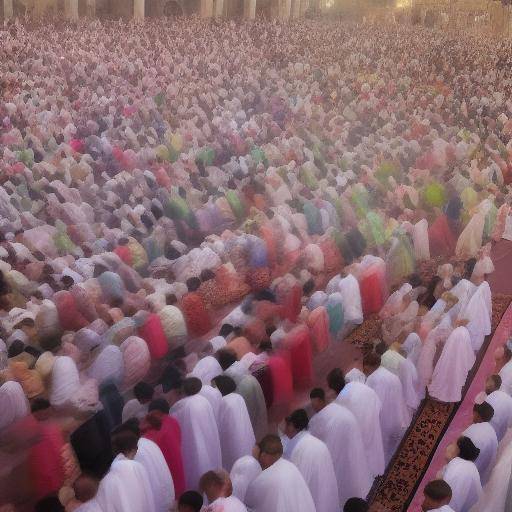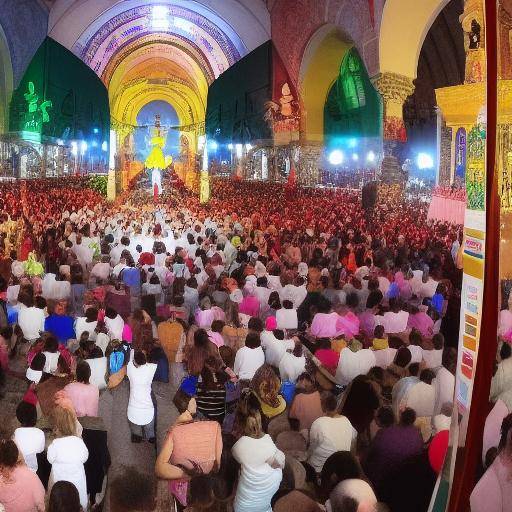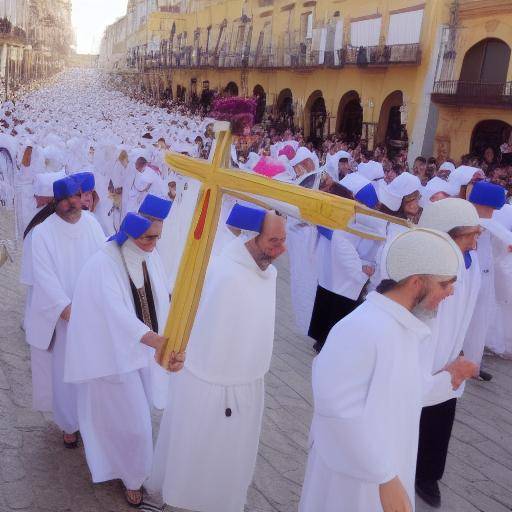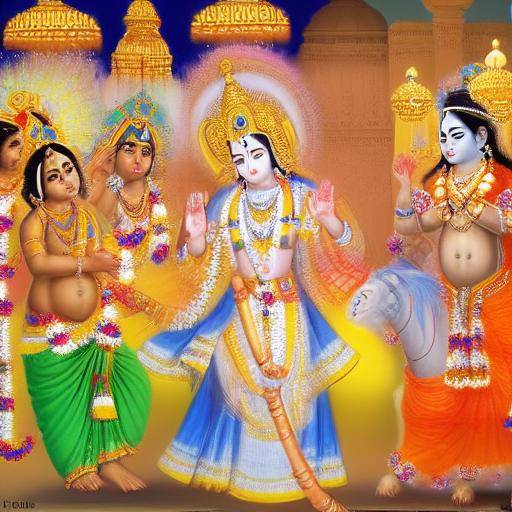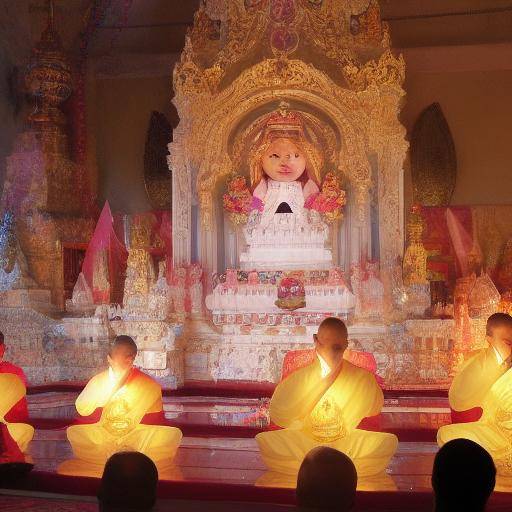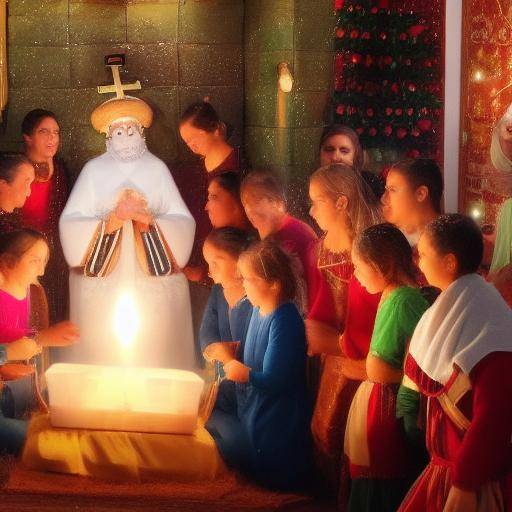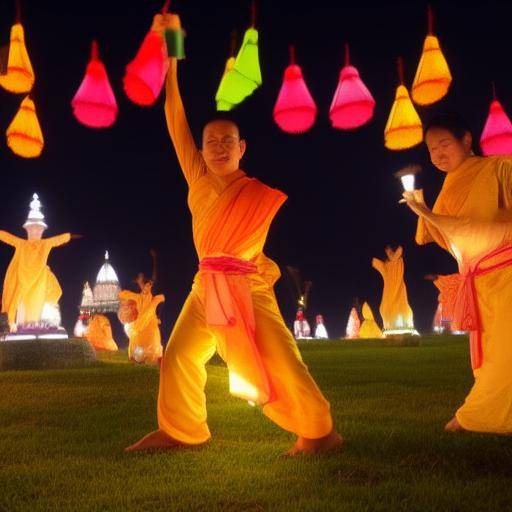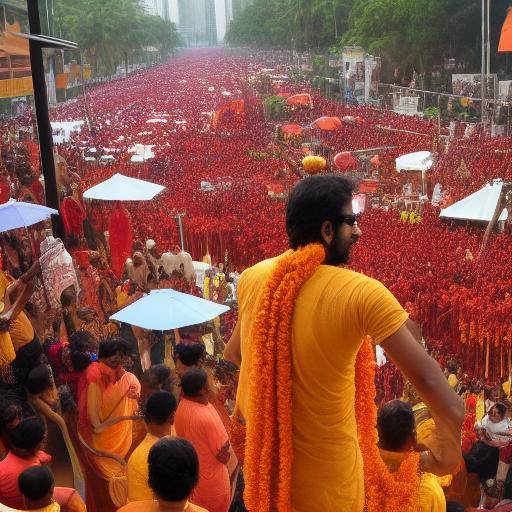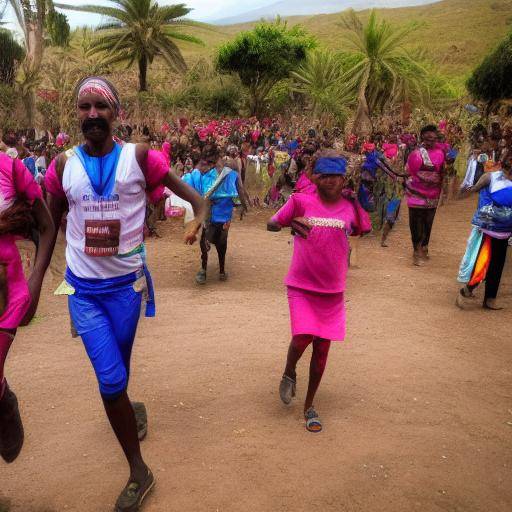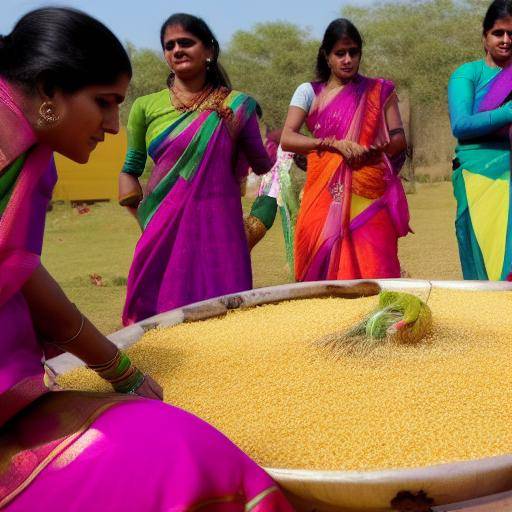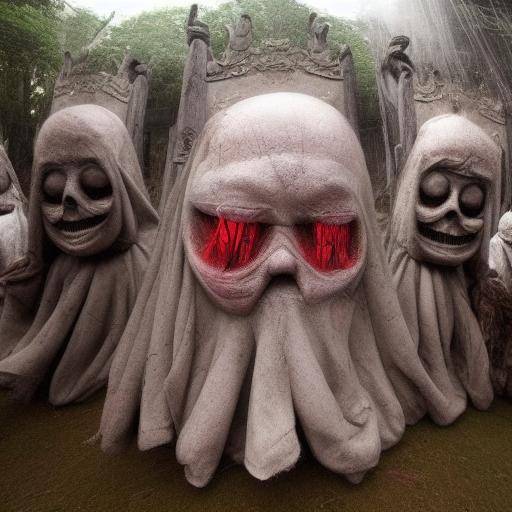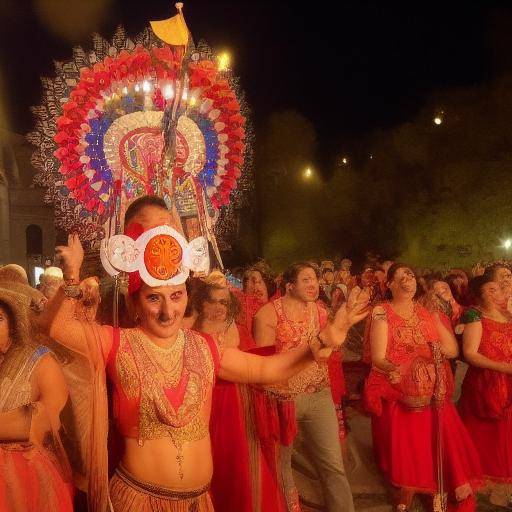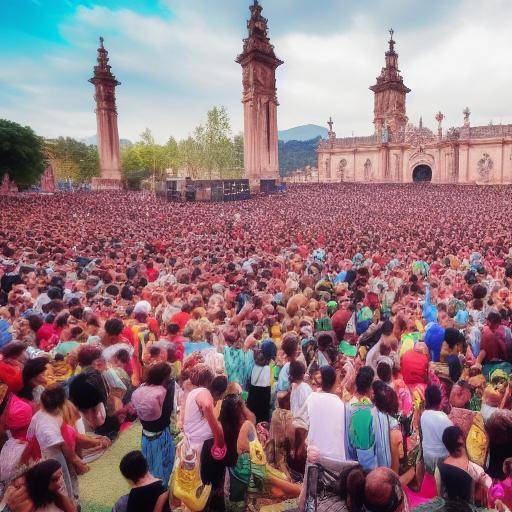
Religious festivals are momentous events that gather communities around the world to celebrate their beliefs, traditions and values. These celebrations represent an amalgam of spirituality, culture and devotion, attracting millions of people who participate in rituals, ceremonies and sacred practices. In this article, we will explore the most significant religious festivals worldwide, from their history and evolution to their impact on contemporary society. In addition, we will examine the importance of these events in the religion, culture and identity of the communities that celebrate them.
Introduction
Religious festivals are exceptional manifestations of cultural diversity and the plurality of beliefs that characterize humanity. Throughout history, these events have played a key role in preserving the traditions, social cohesion and spiritual enrichment of the participants. From the majestic Hindu festivities to Christian commemorations, religious festivals encapsulate the essence of faith and collective celebration.
In this article, we will discover the historical origins, the cultural importance and the global impact of some of the most outstanding religious festivals in the world. We will explore the evolution of these celebrations over time, from their modest beginnings to their outstanding influence today. We will also consider the relevance of these festivals in the contemporary context, addressing aspects such as their contribution to religious coexistence, cultural tourism and the preservation of intangible heritage.
Religious Festivals: History and Context
Religious festivals have their roots in ancient ritual practices dating back millennia. From the splendour Diwali in India to the venerated Holy Week around the world, these festivities reflect the deep connection between the sacred and the secular. As we explore the history and context of these events, it is crucial to understand their cultural and spiritual significance in the social fabric of the communities that celebrate them.
Historical Origins of Religious Festivals
The first remnants of religious festivals go back to ancient civilizations that honored their deities through rituals, sacrifices and festive celebrations. The festivities such as Saturnalia in ancient Rome and the Pancha Ganapati in Hinduism illustrate the pervival of festive practices over time. These events provide a window to the spiritual and cultural richness of ancient civilizations, revealing a veneration and devotion that transcends the barriers of time and space.
Evolution and Meaning of Religious Festivals
Over the centuries, religious festivals have experienced an evolution that reflects both social changes and external influences. The fusion of traditions, adaptation to diverse environments and reinterpretation of rituals have shaped the way in which these celebrations take place. Beyond their religious aspect, these festivals represent community cohesion, artistic expression and the cultural legacy of the societies in which they root. Thus, its meaning transcends the purely spiritual, becoming a living testimony of the collective identity.
Global Impact and Contemporary Relevance
In the modern era, religious festivals have transcended national borders to become global projection events. The dissemination of traditions through the media, religious tourism and the diaspora communities has contributed to the internationalization of these festivals. Their economic impact, their influence on the entertainment industry and their role in interreligious dialogue have made them cultural phenomena of global relevance. At the same time, challenges have emerged regarding cultural authenticity, the preservation of traditions and the marketing of the spiritual aspects of these events, which has generated debates on authenticity and cultural appropriation.
Deep Analysis of Religious Festivals
In-depth analysis of religious festivals gives us the opportunity to explore the essential aspects that define these celebrations. From its social and economic repercussions to its importance in promoting intercultural understanding, this analysis will allow us to better understand the impact and relevance of these festivals in contemporary society.
Social and Community Impacts
Religious festivals play a crucial role in social cohesion and community integration by fostering a sense of belonging and solidarity among participants. These celebrations offer a space for the collective expression of cultural identity and create the opportunity to strengthen interpersonal ties. Moreover, its role in transmitting ethical and spiritual values to future generations is a fundamental aspect that influences the continuity of traditions.
Economic and Tourist Impact
In many cases, religious festivals have a significant impact on the local and regional economy, as they attract national and international visitors, generating employment and fostering the development of tourist infrastructures. Religious tourism, in particular, is a growing sector that drives economic activity in host communities. However, this phenomenon also poses challenges in terms of preserving cultural heritage and environmental sustainability.
Promotion of Intercultural Understanding
Religious festivals provide a space for interreligious dialogue and the promotion of mutual understanding among different communities. Participation in religious rituals and ceremonies often provides an opportunity to learn about the beliefs and practices of other traditions, fostering tolerance and respect for religious diversity. In this way, religious festivals contribute to the construction of cultural bridges and the strengthening of peaceful coexistence among different religious groups.
Challenges and Disputes
Despite its cultural and social importance, religious festivals also face challenges and disputes. Excessive marketing, decourization and misappropriation of sacred practices raise ethical and moral questions about the authenticity and integrity of these celebrations. The balance between the preservation of the spiritual essence of the festivals and their adaptation to contemporary changes is a constant challenge for the communities and the organizing authorities.
Exhaustive Review of Religious Festivals
The exhaustive examination gives us the opportunity to analyze more closely religious festivals from different perspectives, including their relevance in religion, culture and contemporary society. It also allows us to explore the practical applications of these events and examine best practices that enhance their positive impact on communities.
Applications and Best Practices
The celebration of religious festivals offers numerous opportunities for the promotion of art, music, gastronomy and local tourism, which contributes to cultural enrichment and sustainable development. Best practices in managing these events include active community participation, respect for the environment, attention to cultural authenticity and promotion of inclusion and diversity. In addition, collaboration with government entities and non-profit organizations to ensure the safety, infrastructure and proper promotion of the festival is crucial for their sustainable success.
Perspectives of Experts and Future of Religious Festivals
Experts on religion, anthropology, tourism and cultural management provide an invaluable insight into the role of religious festivals in contemporary society. Their views and analysis allow us to understand the current challenges and future opportunities facing these events. In addition, the exploration of emerging trends, such as sustainability, digital technology and youth participation, gives us a vision of the future of religious festivals and their potential to innovate in the cultural and spiritual sphere.
Comparative Analysis of Religious Festivals
Compare and contrast different religious festivals allow us to appreciate the diversity and wealth of religious traditions around the world. By analyzing similarities and differences in practices, meanings and cultural manifestations, we can identify common patterns and singularities that help us understand the universality and uniqueness of religious experience. This also allows us to appreciate the interconnection between the various religious expressions and promotes greater openness and respect for different spiritual traditions.
Practical Tips and Accessible Recommendations
For those interested in participating or learning more about religious festivals, it is useful to offer practical advice and actionable recommendations that facilitate understanding and participation in these celebrations. These advices could include guidelines on appropriate clothing, labeling during rituals, allowed food and drink, participation in community activities and how to show respect for the religious beliefs and practices of hosts.
Tips for Participating in Religious Festivals:
- Research on the customs and traditions prior to the festival to understand its meaning and context.
- Respects clothing and behaviour standards established by the organizers of the festival.
- Participates in a respectful manner in ceremonial practicesfollowing the indications of religious guides or leaders.
- Keep an open, responsive and respectful attitude towards the religious beliefs and practices of the participants.
- Always ask and seek guidance if you have doubts about any aspect of the festival.
** Recommendations for the Promotion of Inclusion and Diversification
idad:**
- It promotes the participation of local communities in the organization and planning of the festival.
- It promotes diversity in festival programming, including varied cultural and religious representations.
- Provide accessible and culturally sensitive information for all participants.
Industry Perspectives and Expert Reviews
Perspectives on Contemporary Relevance of Religious Festivals
Religious festivals have been an integral part of human experience throughout history. As we aspire to understand these highly significant expressions of faith and tradition, it is crucial to consider their role in promoting intercultural understanding and spiritual enrichment.
From the vibrant festivities of carnival in Brazil to the reflective commemorations of Ramadan in the Islamic world, religious festivals embody the diversity of cultural practices, values and expressions in our global communities. In an increasingly interconnected world, these events not only provide an opportunity to celebrate our beliefs, but also offer us a window to appreciate the wealth and complexity of religious traditions around the world.
As observers and participants, it is essential to recognize the importance of respecting and preserving the authenticity of these festivities, as well as of honoring the spiritual and cultural meaning they embody. In doing so, we contribute to the preservation of religious and cultural diversity that enriches our lives and strengthens the bonds that unite us as a global community.
Religious festivals are more than mere celebrations; they are deeply rooted expressions of spirituality, identity and community. Its role in promoting interreligious dialogue, social cohesion and cultural enrichment is invaluable, and its impact transcends geographical and temporal boundaries.
In exploring the history, evolution, impact and future of religious festivals, we enter a world of traditions, beliefs and practices that continue to nurture the very essence of humanity. Through our respect, understanding and appreciation for these holidays, we contribute to a world more inclusive, tolerant and enriched by religious and cultural diversity.
Frequently asked questions about the Religious Festivals
What are some of the most famous religious festivals in the world?
Some of the most famous religious festivals include Kumbh Mela in India, Hajj in Saudi Arabia, the Rio de Janeiro Carnival in Brazil, Diwali in India, Holy Week in many Christian countries, and Ramadan in the Islamic world, among others.
What is the importance of religious festivals in cultural preservation?
Religious festivals play a crucial role in the preservation of culture, the transmission of traditions and the promotion of the cultural identity of a community. Often, these festivals are vehicles for the transmission of knowledge, customs and values between generations.
How can someone respectfully participate in a religious festival that does not belong to their own religion?
It is important to investigate and understand the traditions and practices of the religious festival to which it is attended. To respect the norms of clothing, behavior and participation established by the organizers of the festival, and to show a spirit of openness, respect and curiosity towards the religious beliefs and practices of the hosts, are fundamental.
How do religious festivals influence local tourism and economy?
Many religious festivals attract a large number of visitors, which can have a significant impact on the local and regional economy. Religious tourism plays an important role in promoting economic activity and developing tourist infrastructures in host communities.
What are some contemporary challenges facing religious festivals?
Some contemporary challenges include excessive marketing, deculturization, misappropriation of sacred practices, as well as the preservation of the cultural and spiritual authenticity of festivals in the context of globalization.
What is the impact of religious festivals on promoting intercultural understanding?
Religious festivals provide an invaluable space for interreligious dialogue and the promotion of mutual understanding among different communities. Participation in these celebrations offers the opportunity to learn about the beliefs and practices of other traditions, promoting tolerance and respect for religious diversity.
As we explore the diversity and wealth of religious festivals, we immerse ourselves in a world of cultural traditions, beliefs and expressions that continue to nurture the very essence of humanity. Through our respect, understanding and appreciation for these holidays, we contribute to a world more inclusive, tolerant and enriched by religious and cultural diversity.
Religious festivals represent a living manifestation of faith, tradition and community. Its importance transcends geographical and temporal borders, enriching our lives and strengthening the ties that unite us as a global community.

